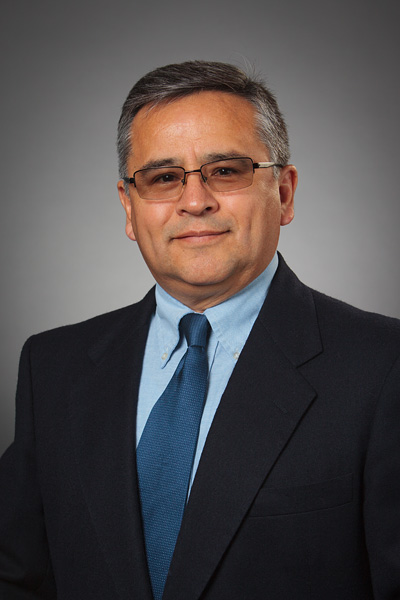Staff Spotlight: Dr. Jorge Salazar-Bravo, International Faculty at TTU

Dr. Jorge Salazar-Bravo, Associate Professor in the Department of Biological Sciences, specializes in the evolution and systematics of Neotropical mammals and the interplay between systematics and disease ecology. Originally from Bolivia, Dr. Salazar now calls Lubbock home. He completed his undergrad in La Paz, Bolivia at the public university and his doctorate at the University of New Mexico. Dr. Salazar joined the faculty of Texas Tech University in 2003 where he currently teaches courses such as Evolution, and Ecology & Environmental Problems.
Childhood adventures with his dad, brother, and friends instilled a passion for exploring the environment and dreams of finding a career that would allow him to do it full-time. As a developing country in the mid 1980's, Bolivia was the perfect “laboratory” for an up and coming biologist. With a growing interest in international partnerships, diversity, and cultural exchanges, the public university in La Paz provided a diverse collaborative environment for Dr. Salazar's studies. Faculty from around the world came to the region to conduct research and teach, while Bolivians returning from studying abroad were sharing their experiences as well. “It was a great place to be and so much fun. We had faculty from Russia, Germany, and Bolivians who were returning from different parts of the world. It was a great place to study as an undergrad,” said Salazar. While completing his undergrad at the public university in La Paz, Dr. Salazar worked at the National Museum of Natural History. Here he met his mentor and eventually set a course to make a career of studying mammals and disease ecology. The job of cleaning mammal cages led to an interaction with the work of Japanese scientists who were trapping mammals around the city. From this experience, Salazar became interested in learning more about the evolution of these species and the diversity of mammals found within such a small area. “These were beautiful animals and it really made me think about evolution and speciation. The niche was open and I was interested in the subject matter. As life would have it, an opportunity opened during the summer break for me to participate in a joint research project with several American universities. The research focused on creating a baseline inventory of mammals to document viruses and bacteria that could potentially become the new pandemics in humans. Historically, each year thousands of people get sick and some even die from unknown causes. There are a limited number of tests available to determine if known pathogens cause these illnesses. This groundbreaking research compared the baseline of viruses and bacteria in the mammals to samples collected from humans in the same region with unknown illnesses to determine if there was a correlation. Many of the methods used to gather and process samples during this study are now standard procedure for those doing research in Bolivia and other areas of Latin America,” explained Salazar.
Following the completion of his Ph.D. in Biology at the University of New Mexico, Salazar accepted a position as Associate Professor in the Department of Biological Sciences with Texas Tech University where he continues to teach and conduct research in the area of systematics and disease ecology in mammals. Most recently, Dr. Salazar accepted the appointment as Program Director for the TTU campus in Costa Rica. Salazar said, “This project in Costa Rica is like a huge puzzle right now and I see my role as helping to bring all of the pieces together [so they] work efficiently. We are still in the working stages, but we are making very good progress.” Scheduled to open in August 2018, this new campus in San José, Costa Rica, will offer students in Central America a variety of opportunities in engineering, sciences, business, and RHIM to earn both undergraduate and graduate degrees.
Dr. Salazar and his wife of 26 years met as teenagers, but did not start dating until after college. "We have been blessed with three amazing kids, one boy (Fernando) and two girls (Sofia, and Maia). Fernando (25) graduated with a Biology degree (UNM) in Dec 2014 and after 2.5 years conducting research on a Malaria vaccine at an NIH Laboratory in DC, is now a Peace Corp volunteer. He is currently in Peru, where he will be working on a rural and community public health program. Sofia (19) is a Chemistry sophomore here at Texas Tech; she is a gifted clarinet player who consistently ranked as 1st or 2nd chair at regional or Texas-wide competitions since middle-school. Her passion is now devoted to science and works as an undergraduate researcher at the USDA Agricultural Research Services here in Lubbock. Maia (14) just started high school at Lubbock HS; she loves playing tennis, running, cooking, and is a wonderful baker. She enjoys traveling, reading, spending time with her older sister, and long walks with her 13-yr old beagle.”
International Affairs
-
Address
601 Indiana Avenue, Lubbock, TX 79409-5004 -
Phone
806.742.3667 -
Email
oia.reception@ttu.edu
